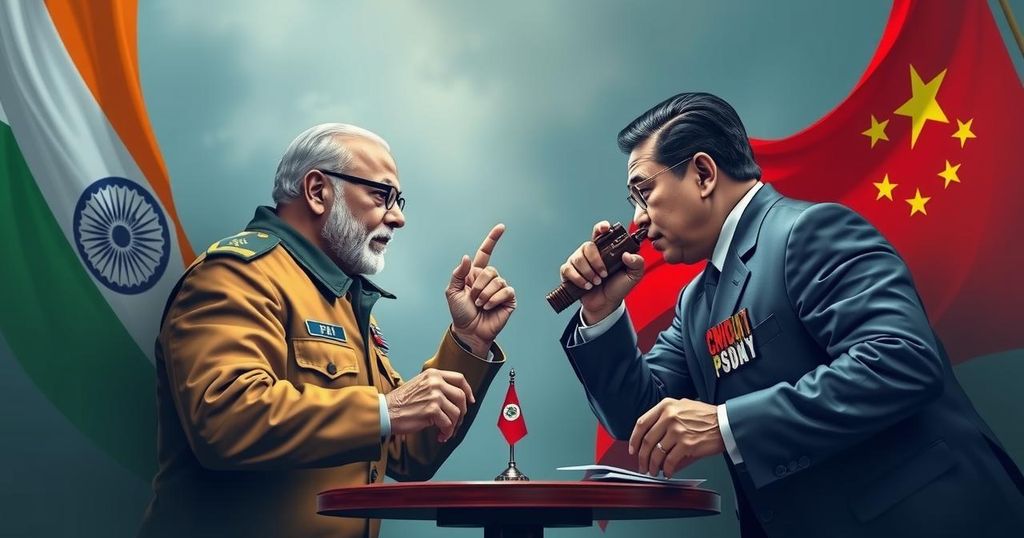India and China have reached an agreement on patrolling arrangements to resolve the military standoff at the Line of Actual Control, extending to unresolved territories. This development is anticipated to conclude tensions that have persisted since April 2020. Foreign Secretary Vikram Misri confirmed the mutual agreement amidst preparations for Prime Minister Modi’s attendance at the BRICS summit, which may include a meeting with Chinese President Xi Jinping.
In a significant development, India and China have successfully established an agreement concerning “patrolling arrangements” aimed at resolving the ongoing military standoff at the Line of Actual Control (LAC). The announcement, made on October 21, 2024, indicated a comprehensive approach that extends beyond previously disengaged areas and addresses contentious locations such as Demchok and Depsang. This resolution is expected to conclude the standoff that has existed since April 2020. Although specific details regarding the status quo prior to 2020 and the future of newly established “buffer zones” were not disclosed by the Ministry of External Affairs (MEA), Foreign Secretary Vikram Misri confirmed that mutual agreement had been reached on the discussed issues. Mr. Misri’s comments came during a media briefing in anticipation of Prime Minister Narendra Modi’s imminent visit to Russia for the BRICS summit, where he is expected to engage with Chinese President Xi Jinping. Mr. Misri reported that consistent negotiations between Indian and Chinese diplomatic and military officials over recent weeks had culminated in this agreement, which will facilitate organized patrolling along the contested border regions. The timing of this announcement suggests a possible bilateral meeting between Mr. Modi and Mr. Xi, as the two leaders have met infrequently since the Galwan clashes in June 2020, which resulted in the loss of 20 Indian soldiers. Although Mr. Misri refrained from confirming a meeting between the two leaders, he indicated that the government is considering various requests for bilateral discussions in Kazan during the BRICS summit. In a related remark, External Affairs Minister S. Jaishankar stated, “We have gone back to where the situation was in 2020; so we can say that the disengagement process with China has been completed.” He emphasized that this agreement represents a constructive outcome of persistent diplomatic efforts that foster peace along the border.
The military tensions between India and China have persisted since April 2020, primarily revolving around disputed territories along the Line of Actual Control (LAC). Diplomatic and military dialogues have been ongoing since then, with several high-level meetings attempting to mitigate the situation. The recent agreement signifies a pivotal moment in the relations between the two countries, with hopes of restoring stability and enabling periodic patrolling that was effective prior to the escalation of tensions in 2020.
The recent agreement between India and China regarding patrolling arrangements represents a significant step forward in mitigating military tensions along the LAC. The successful negotiations signal a potential return to pre-2020 conditions, enhancing the prospect for peace and stability along the contentious border. It highlights the importance of diplomacy in resolving conflicts and sets a promising foundation for future bilateral engagements, particularly in light of the upcoming BRICS summit.
Original Source: www.thehindu.com






